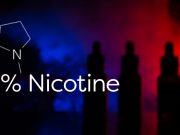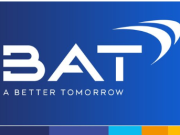Just like users of regular tobacco sticks, Levia users insert the sticks into a vape-like device that heats rather than burns the product, releasing nicotine and flavour. Many are arguing that the product is nothing but a loophole created to bypass flavour bans and other regulations imposed on tobacco products.
For instance, in the Netherlands, the Dutch product safety board NVWA is currently unable to regulate Levia because it is classified as a herbal product, and is therefore not subject to existing anti-tobacco laws. To this effect, anti-smoking group Rookvrije Generatie has labelled Levia as a ploy to continue selling flavoured nicotine products, emphasizing the addictive nature of nicotine and the unknown long-term health risks. Moreover, CEO Jacek Olczak himself, has previously highlighted that Levia is likely to avoid the heavy taxes and regulations imposed on traditional tobacco products.
Altria submits PMTAs for fruit-flavoured NJOY
In other news, PMI’s competitor Altria Group Inc. has reportedly recently finalized PMTA submissions to the U.S. Food and Drug Administration (FDA), for NJOY vape products featuring blueberry and watermelon flavours. The applications were announced recently by Altria CEO Billy Gifford, at the Consumer Analyst Group of New York conference.
The tobacco giant is also awaiting the FDA’s response to a submission for a menthol version of NJOY. Altria plans to employ Bluetooth technology to prevent underage use, although specific details have not been disclosed. Gifford stated that the company has demonstrated the effectiveness of age-gating restrictions in preventing underage access in nearly all cases.
Altria aims to expand the availability of its regular tobacco-flavoured NJOY vape products from around 75,000 stores last year to 100,000 stores in 2024. The company estimates the international market for heated tobacco and vape products to be worth between $35 billion and $50 billion. Additionally, following a positive response to the launch of larger-sized oral nicotine pouches, On! Plus in Sweden, Altria plans to expand distribution in the country and launch On! Plus products in the UK later this year.
Tobacco companies are increasingly transitioning from traditional cigarettes to safer nicotine alternatives, such as vapes, nicotine pouches, and heated tobacco products. This shift is driven by changing consumer preferences, regulatory pressures, and growing public health concerns about the harmful effects of smoking.
Big tobacco’s evolving business strategy
Major tobacco companies like PMI and British American Tobacco (BAT) have invested heavily in developing and marketing these alternatives, promoting them as less harmful options for smokers who are unwilling or unable to quit nicotine entirely. These claims are accompanied by studies, some independent and some of course funded by the industry. The research has consistently indicated that these products can reduce the overall health risks associated with tobacco use, potentially lowering smoking-related diseases and deaths.
Critics however, argue that tobacco companies may use these alternatives as a means to maintain market share and normalize nicotine use. There are concerns that these products could attract non-smokers, including young people, leading to nicotine addiction. Additionally, some argue that the long-term health impacts of these alternatives are not yet fully understood, warranting caution.
Meanwhile, tobacco harm reduction (THR) experts and other supporters of this movement believe that safer nicotine alternatives provide a viable harm reduction strategy. They believe that by offering less harmful options, tobacco companies can help reduce the public health burden caused by smoking. Advocates also point out that these products are often more acceptable to smokers, increasing the likelihood of a successful switch from combustible cigarettes. Ultimately, they emphasise, the larger the variety of nicotine products available, the higher the chances for smokers to find a product which suits their needs and helps them quit smoking.












